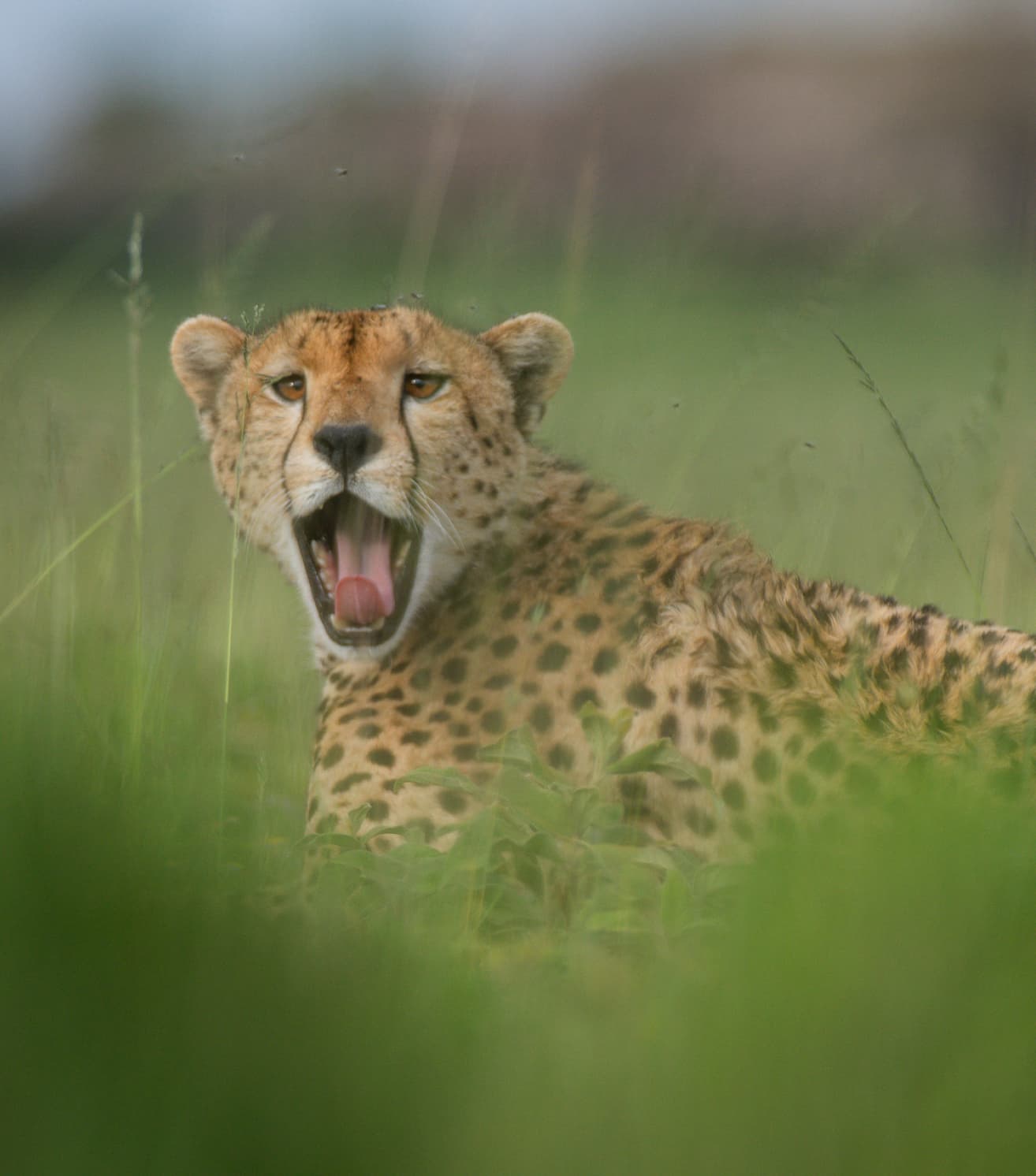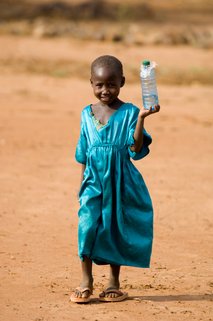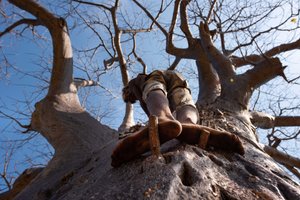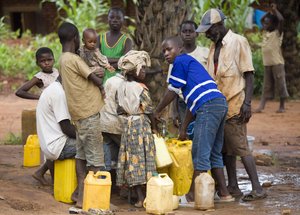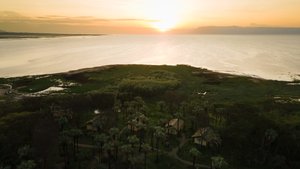THE SIGNIFICANCE OF WATER
The strangled call of a neighbours cockerel rouses Kachiki at the break of dawn. She strikes a match to the kerosene lantern beside her sleeping mat, wraps a woven blanket over her shoulders to ward off the morning chill, and steps cautiously out of her mud house. The darkness still lingers, and she holds the lantern at arm’s length, scanning her surroundings as she makes her way to the outdoor latrine.
As she emerges, the birds are already chirping cheerfully. She joins her mother by the open fire, where a yellow plastic bucket, holding their precious water supply, is nearly empty. Kachiki pours a small amount into a plastic basin, washes her hands, and accepts a steaming mug of fragrant tea. She drinks quickly, slips into her school uniform, grabs the now-empty bucket, and hurries to join other children heading to the nearby spring. Each carries a 20-liter bucket, chatting along the way, but keeping pace, mindful of the long walk ahead. School awaits, and the burden of water collection is a daily necessity they cannot escape. Though Kachiki, now ten, is strong and fit, the younger children will need to stop and rest several times before they make it.
A young girl on her daily trip to the water source.
Babaa has spent the morning hunting and foraging. His stomach is full of endushube berries, and a couple of fat guinea fowl hang limply from his twine belt. The long trek in search of food has left him parched. He could dig for water in the dry riverbed, but that would mean a detour on his way back to his family’s temporary camp. Instead, he spots a towering baobab tree and makes his way toward it. Laying his bow and arrows at its base, he climbs up the trunk, using wooden stakes hammered into the bark by his people generations ago.
A man from the Hadza community on search for some caught rain water. Photo Roshni LodhiaHigh in a fork, a hollow in the tree holds a small reservoir of rainwater. He is lucky, it hasn’t dried up yet. Using the husk of an old baobab pod, he scoops up the water and drinks deeply. Refreshed, he climbs back down, settling into the shade to rest and finish crafting an arrow he started that morning. Plucking a handful of feathers from one of the guinea fowl, he retrieves a dried sinew string from a lesser kudu his father hunted days ago. He licks the sinew to soften it, then carefully binds the feathers to the shaft.
Babaa is not yet twelve, but he is already a self-sufficient hunter and forager, fully capable of providing for himself and contributing to his family’s survival.
Gidamili pours another bucket of water into the cattle’s drinking trough, swatting at the flies that buzz around his face. His arms and back ache from the weight of the heavy loads, and the midday sun beats down relentlessly. The air is thick with dust kicked up by the herd. With the dry season in full force, the surface water holes have vanished, forcing his elders to dig deep into the riverbed.
Men stand waist-deep in these hand-dug wells, their voices echoing as they fill buckets, tie them to ropes, and pass them up the line. The youngest, Gidamili, has the final task, emptying the precious water into the trough. The sky is an endless, washed-out blue, with no sign of rain. Until it arrives, this daily ritual will continue: men labouring to bring water to their herds, while women and girls wait patiently under an acacia tree, ready to carry water back home for cooking, drinking, and washing.
Water is life. We all know this, yet many of us rarely stop to consider what that truly means for the majority of the world’s population. For some, water requires a daily journey, a necessity to sustain life, cook, and wash with the bare minimum. For others, it is as simple as turning a tap or waving a hand to activate a sensor. This everyday convenience, taken for granted by so many, remains an unimaginable luxury for others.
Community life. Locals gather around for water collection.At Entara, we recognise the immense value of water, particularly in the arid regions where we operate. With both people and wildlife dependent on this scarce resource, we take great care in how we use it across all our camps in Northern Tanzania, adapting our practices to each unique location. For this reason, we have chosen not to include pools or open-air showers in areas where water is limited. Instead, we prioritise sustainable bathing solutions, balancing guest comfort with environmental responsibility.
At Esirai and Olmara Camps in the Serengeti, we truck in water daily from the nearest borehole, sometimes from over an hour away. Olmara has stringent water conservation measures, while Esirai, a mobile camp that follows the Great Migration, is designed for minimal water usage, incorporating classic safari bucket showers and long-drop toilets.
At Olkeri Camp, in the Maasai conservation area of Randilen near Tarangire, water scarcity is less severe. Here, a borehole supplies the camp and also replenishes a waterhole for local wildlife.
Kisima Ngeda Camp on the shores of Lake Eyasi. Photo: Fahad FaudKisima Ngeda Camp, on the shores of Lake Eyasi, benefits from a natural freshwater spring. This allows us not only to meet the camp’s needs but also to support nearby schools and communities through a solar-powered water project. In this rare instance, we can even provide a pool for guests to enjoy.
Water is a resource we carefully manage during your safari, but we hope our approach leaves a lasting impression, one that stays with you long after your journey ends.

